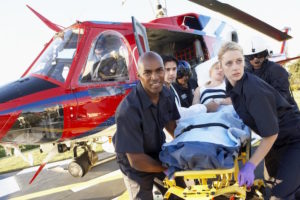Before You Travel
If you are an older adult considering international travel, learn what precautions to take to stay safe and healthy during your trip. Check the CDC’s webpage for your destination to see what vaccines or medicines you may need and what diseases or health risks are a concern at your destination. Make an appointment with your healthcare provider that should take place at least one month before you leave. They can help you get destination-specific vaccines, medicines, and information. Discussing your health concerns, itinerary, and planned activities with your provider allows them to give more specific advice and recommendations.
Tell Your Doctor About:
Any chronic medical conditions, All destinations that you will be visiting, purpose of your trip, timing, length and type of your trip, activities you're considering doing, The types of accommodations where you will be staying such as hotels, hostels, short term rentals, boats, camping etc. Planned activities, such as climbing at high altitudes, scuba diving, humanitarian aid work, or taking cruises, Get what called "vacation refills" on all medications to last the duration of your trip. Make sure you're up to-date on routine vaccines. Avoid the pitfall of purchasing Counterfeit drugs that may be appealing because of low prices. Make sure to pack enough for the duration of your trip, plus extra in case of travel delays. Make sure to place important medications in your carry-on bags. Visit TSA website for what's allowed and how to package liquid meds. Learn more about traveling abroad with medicine.

Cruises are popular among older adults. However, cruise ships can create an ideal situation for diseases to spread. Common diseases that spread on cruise ships include norovirus, that can cause diarrhea and vomiting, and respiratory diseases like influenza and COVID-19. To help prevent getting sick, make sure to wash your hands often, especially before eating and after using the bathroom. Wash your hands before touching your eyes, nose, or mouth.

Get travel insurance. Find out if your health insurance covers medical care abroad. Travelers are usually responsible for paying hospital and other medical expenses out of pocket at most destinations. Make sure you have a plan to get care overseas, in case you need it. Consider buying additional insurance that covers health care and emergency evacuation, especially if you will be traveling to remote areas. There are different types of travel insurance such as trip cancellation insurance, travel health insurance and medical evacuation insurance. Learn more about travel insurance.
Plan for the Unexpected
Enroll with the Department of State’s Smart Traveler Enrollment ProgramExternal Link (STEP). Check for and monitor any travel advisories for your destination. Enrolling also ensures that the US Department of StateExternal Link knows where you are if you have serious legal, medical, or financial difficulties while traveling. In the event of an emergency at home, STEP can also help friends and family contact you.
